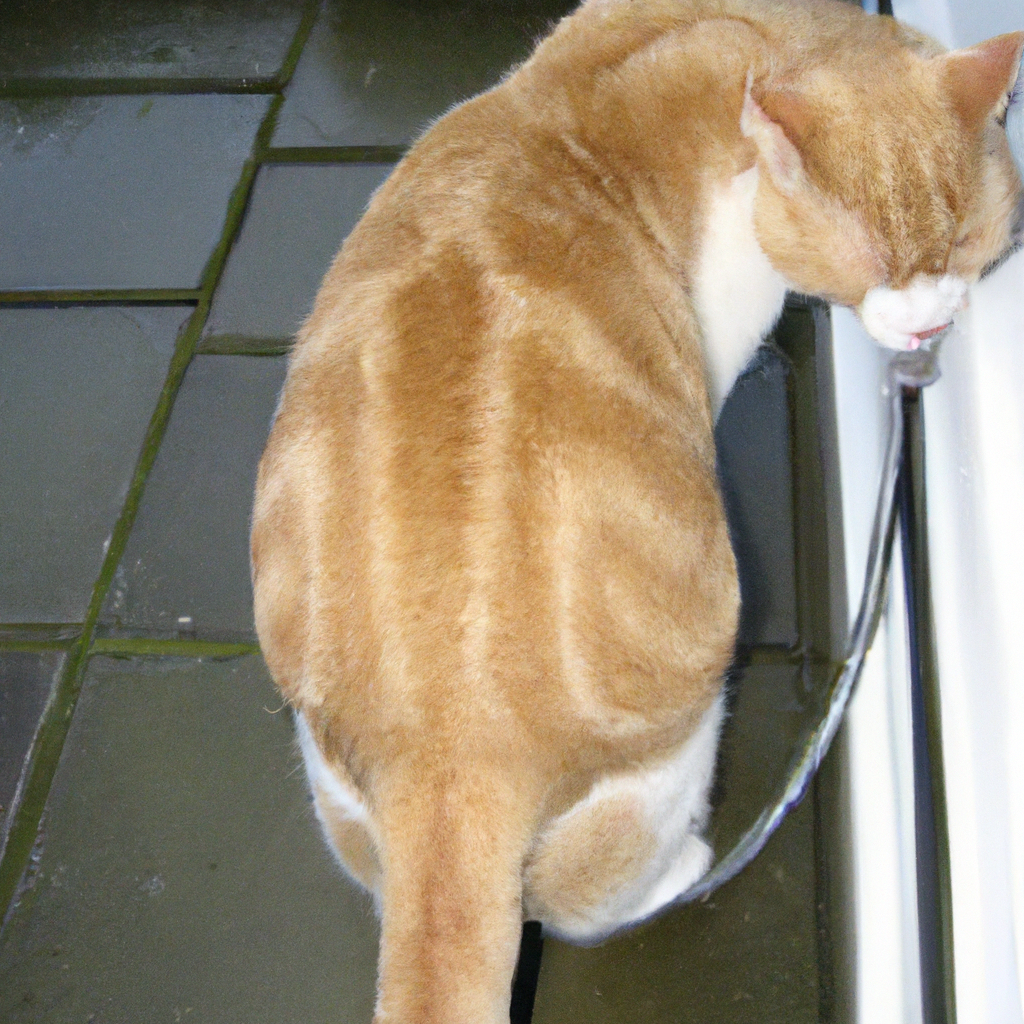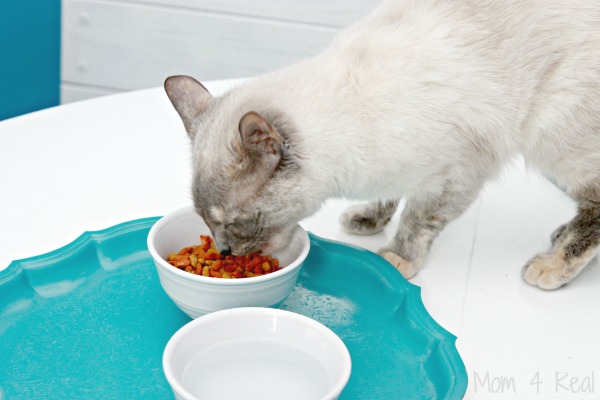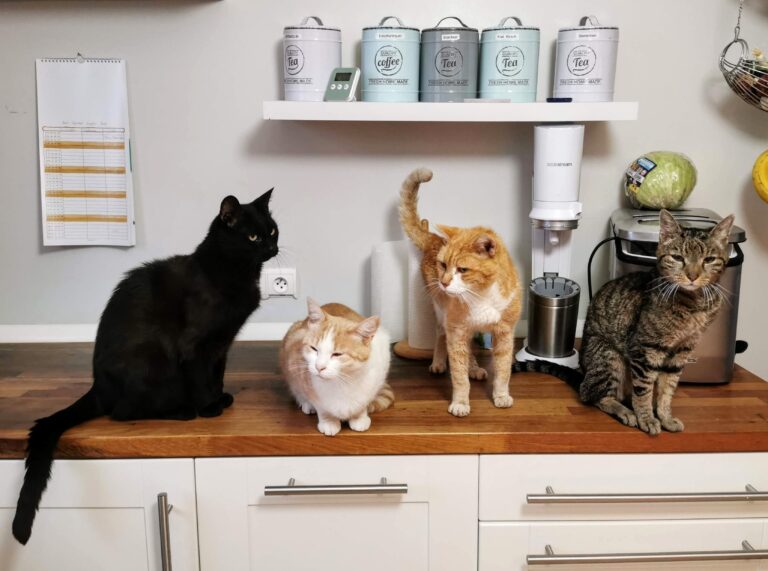What Age Do Male Cats Start Spraying
If you’ve ever been the proud owner of a male cat, you may have wondered what age they begin spraying and marking their territory. Dealing with a cat that pees in the house can be frustrating and costly, not to mention the lingering smell it leaves behind. Fortunately, understanding when male cats start spraying can help you prepare and prevent this unwanted behavior. In this article, we’ll explore the age at which male cats typically start spraying and provide some insights to help you keep your home free from this unpleasant experience.
Understanding Spraying Behavior in Male Cats
What is spraying?
Spraying is a behavior in which male cats mark their territory by releasing a small amount of urine. Unlike urinating, which is done to relieve their bladders, spraying is a deliberate act of communication. Male cats spray by standing upright and depositing urine on vertical surfaces such as walls, furniture, or doorways. This behavior is highly distinctive and can cause significant disruptions in a household.
Why do male cats spray?
Male cats spray primarily to mark their territory and communicate their presence. By leaving their scent through urine, they are essentially posting a sign that says, “This area is mine.” Spraying can also be a response to stressful situations or changes in their environment. It serves as a way for them to assert their dominance and establish a sense of familiar territory.
When do male cats start spraying?
Male cats typically start spraying behavior between the ages of six months and two years. This period coincides with their sexual maturity and the onset of hormonal changes. However, it is important to note that not all male cats will engage in spraying behavior. Factors such as genetics, environmental conditions, and individual personality traits can influence whether a cat will spray or not.
Signs of spraying behavior
Identifying spraying behavior in male cats is essential in addressing the issue. Some common signs include:
- Marking territory with urine scent: Male cats spray urine on vertical surfaces, often near windows or doors, to mark their territory.
- Frequent urination outside the litter box: If your male cat is consistently urinating outside the litter box, it may indicate spraying behavior.
- Spraying in an upright position: Unlike normal urination, spraying is done in an upright position with the tail raised.
- Spraying on vertical surfaces: Look for urine stains on walls, furniture, or other vertical surfaces.
- Aggressive behaviors towards other cats: Spraying can also be a form of assertion or aggression towards other cats in the household or neighborhood.
Factors That Influence Spraying in Male Cats
Hormonal changes
Hormonal changes play a significant role in the spraying behavior of male cats. The surge of testosterone during sexual maturity can trigger spraying as a way to advertise their sexual availability. Neutering can help reduce hormonal influences and minimize spraying behaviors.
Territorial instincts
Cats are instinctively territorial animals, and spraying is a natural way for them to mark their territory and establish boundaries. This behavior is more commonly observed in male cats, who have a stronger instinctual drive to mark their territory than female cats.
Stress and anxiety
Stress and anxiety can also contribute to spraying behavior in male cats. Major changes in their environment, such as the introduction of a new pet or a move to a new home, can cause stress and trigger spraying. Cats may spray as a way to cope with these changes or assert their dominance.
Presence of other cats
The presence of other cats, particularly intact males, can significantly influence spraying behavior. Male cats may spray in response to the scent of other cats in their territory, as a means of marking their dominance or displaying territorial aggression.
Environmental changes
Changes in the living environment can also impact spraying behavior in male cats. These changes can include rearranging furniture, bringing in new items with unfamiliar scents, or even something as simple as a change in the household routine. Male cats may spray in response to these changes to re-establish familiar territory.

Age Range for Male Cats to Start Spraying
Puberty and sexual maturity
Male cats generally reach sexual maturity at around six months of age. This is when their reproductive organs have fully developed, and their hormones, particularly testosterone, begin to drive their sexual behaviors. It is during this time that male cats may start spraying as a display of their sexual availability.
Age range for spraying behavior
While spraying behavior can start as early as six months of age, it can continue until the age of two or three years. The frequency and intensity of spraying may vary among cats. Some male cats may only spray occasionally, while others may engage in more persistent spraying behavior.
Individual variations
It is essential to recognize that each male cat is unique, and there can be individual variations in when spraying behavior starts. Factors such as genetics, environmental conditions, and individual personality traits can all influence the onset and intensity of spraying behavior. Observing your cat’s behaviors and understanding their individual needs will help in addressing and preventing spraying issues.
Puberty and Sexual Maturity in Male Cats
Physical and behavioral changes
Puberty and sexual maturity bring about significant changes in male cats. Physically, male cats may experience growth spurts, develop a stronger and more muscular physique, and begin to develop secondary sexual characteristics such as thicker necks and prominent cheek glands. Behaviorally, they may become more vocal, more territorial, and display increased sexual behaviors.
Onset of sexual maturity
As male cats reach sexual maturity, their reproductive hormones come into full effect. Testosterone levels rise, triggering the development of sexual behaviors such as spraying and seeking out potential mates. This period of sexual maturity is a critical time when male cats are more likely to engage in spraying behavior.
Effect of neutering on spraying
Neutering, the surgical removal of the testicles, can significantly reduce or eliminate spraying behavior in male cats. Without the influence of testosterone, the hormonal drive behind spraying is diminished. Neutering also reduces the desire to mark territory and reduces the aggression commonly associated with intact males. It is generally recommended to have male cats neutered before they reach sexual maturity to prevent or minimize spraying behavior.

Age Range for Spraying Behavior in Male Cats
Typical age range for spraying to start
The typical age range for spraying behavior to start in male cats is between six months and two years. However, it is important to note that individual cats may exhibit spraying behavior outside of this range. The onset of spraying can depend on various factors, including genetics, hormones, and environmental influences.
Variances based on breed and genetics
Certain breeds of male cats may have a higher propensity for spraying behavior. For example, Siamese and Bengal cats are known to be more prone to spraying than other breeds. Additionally, there may be genetic factors that influence the likelihood and intensity of spraying behavior in male cats.
Other factors impacting spraying age
In addition to breed and genetics, other factors can impact the age at which male cats start spraying. Environmental changes, stress levels, the presence of other cats, and socialization experiences can all contribute to the onset of spraying behavior. Being aware of these factors and taking proactive measures can help prevent or minimize spraying issues.
Signs Indicating Male Cats May Start Spraying
Marking territory with urine scent
One of the most prominent signs that a male cat may start spraying is the marking of territory with urine scent. Pay attention to any new areas or objects that your cat starts to urinate on, particularly vertical surfaces such as walls or furniture. This behavior is often a clear indication of spraying behavior.
Frequent urination outside the litter box
If your male cat begins to frequently urinate outside the litter box, it could be a sign that spraying behavior may soon start. This behavior is usually linked to the cat’s need to mark territory and communicate their presence to other cats.
Spraying in an upright position
Unlike regular urination, spraying is done in an upright position. If you observe your male cat assuming this posture while urinating, it is likely an early sign of spraying behavior. The cat may lift its tail and aim the urine at walls or other vertical surfaces.
Spraying on vertical surfaces
Spraying behavior is characterized by the preference for vertical surfaces. While regular urination usually takes place in a litter box or on horizontal surfaces, sprayed urine will be targeted at walls, furniture, or other vertical objects.
Aggressive behaviors towards other cats
The onset of spraying behavior in male cats can often be accompanied by increased aggression towards other cats, especially if they are intact males. This aggression is a result of the instinctual drive to establish dominance and protect territory. Pay attention to any escalating conflicts between your male cat and other feline companions.

Preventing Spraying Behavior in Male Cats
Neutering as a preventative measure
Neutering is the most effective way to prevent or minimize spraying behavior in male cats. By removing the testicles and reducing testosterone levels, neutering eliminates the hormonal drive behind spraying. It is generally recommended to have male cats neutered before they reach sexual maturity to prevent the onset of spraying behavior.
Establishing a consistent routine
Creating a consistent routine for your male cat can help reduce stress and minimize the likelihood of spraying. Consistency in feeding, playtime, and interactions can provide a sense of security and stability, reducing the need for territorial marking.
Providing a suitable litter box
Ensuring that your male cat has access to a clean and suitable litter box is crucial in preventing spraying behavior. The litter box should be large enough for the cat to move comfortably and should be located in a quiet and accessible area. Regular cleaning and litter changes are also important to maintain a hygienic environment.
Reducing stress and anxiety
Stress and anxiety are common triggers for spraying behavior in male cats. To minimize these factors, provide a calm and enriched environment for your cat. Consider providing vertical spaces, such as cat trees or shelves, to allow your cat to climb and observe their surroundings. Additionally, establish routines and provide mental stimulation through interactive toys and play sessions.
Using deterrents and pheromone sprays
Deterrents and pheromone sprays can be effective tools in preventing spraying behavior. Some commercially available products emit scents that are unappealing to cats and discourage them from marking certain areas. Additionally, synthetic pheromone sprays, such as Feliway, can help create a sense of calmness and reduce spraying by mimicking natural feline pheromones.
Addressing Spraying Behavior in Male Cats
Consulting a veterinarian
If your male cat has already started spraying or if you are concerned about potential spraying behavior, it is essential to consult with a veterinarian. They can rule out any underlying medical conditions that may be contributing to the behavior and provide guidance on appropriate management strategies.
Behavioral modification techniques
Behavioral modification techniques can be effective in addressing spraying behavior in male cats. These techniques focus on positive reinforcement, redirecting the cat’s behavior to more appropriate outlets, and addressing any underlying triggers or stressors. A professional animal behaviorist can provide guidance and develop a tailored plan for your specific situation.
Creating a safe and stress-free environment
Creating a safe and stress-free environment is crucial in addressing spraying behavior. Eliminate potential stressors, provide hiding spots and vertical spaces, and ensure that your cat has access to all their basic needs, including food, water, and a suitable litter box. A comfortable and enriched environment can help alleviate stress and reduce the likelihood of spraying.
Medical conditions that can cause spraying
In some cases, spraying behavior may be a symptom of an underlying medical condition. Urinary tract infections, bladder stones, or hormonal imbalances can all contribute to a cat’s urge to mark territory through spraying. If spraying behavior persists or is accompanied by other symptoms such as frequent urination, blood in urine, or changes in appetite, a thorough medical evaluation is necessary.
Consistency and patience in addressing the issue
Addressing spraying behavior in male cats requires patience and consistency. It is essential to establish a routine, provide appropriate resources, and address any underlying triggers or stressors. Understand that resolving spraying behavior may take time and may require a combination of management strategies and behavioral modification techniques.

Conclusion
Understanding spraying behavior in male cats is crucial in providing appropriate care and addressing any issues that may arise. By recognizing the factors that influence spraying, identifying the signs indicating spraying may occur, and implementing preventative measures, you can create a safe and stress-free environment for your feline companion. Remember, seeking professional guidance from a veterinarian or animal behaviorist can provide invaluable support in managing and resolving spraying behavior in male cats.







